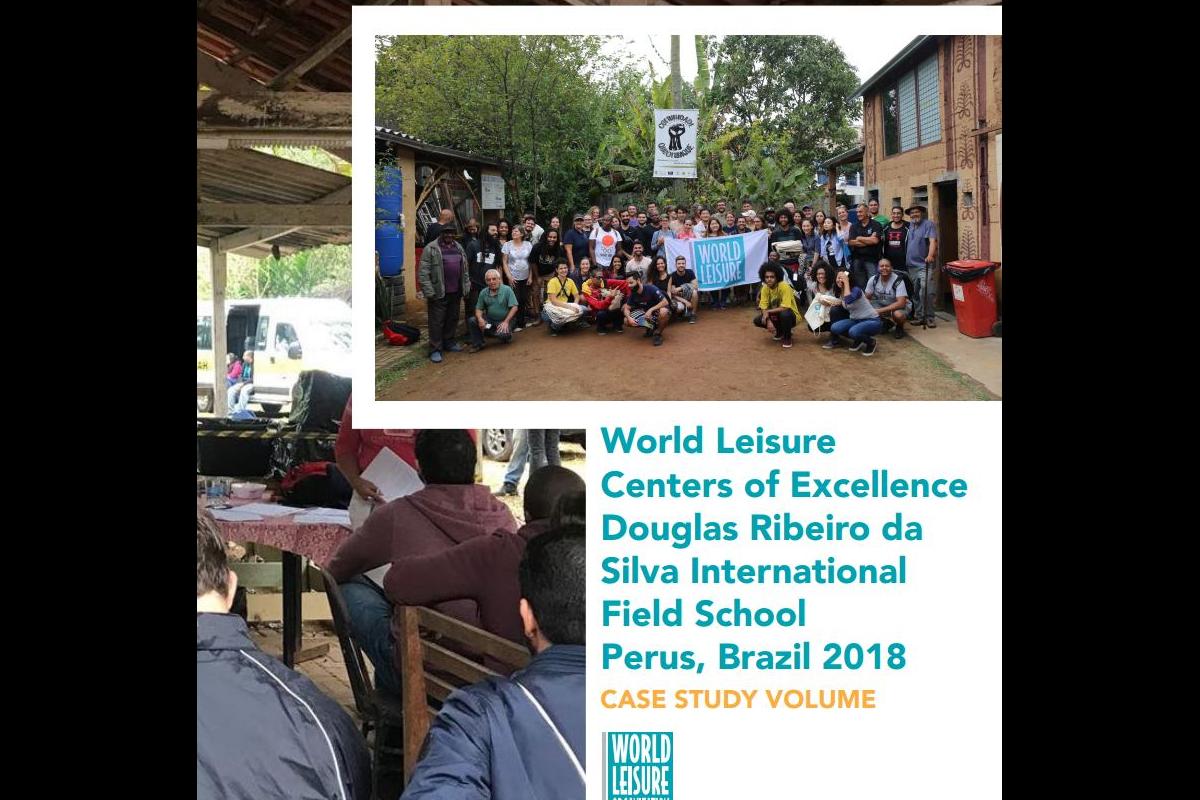
2018 WLCE Douglas Ribeiro da Silva International Field School - Perus, Brazil
Case Study Volume
VIU WLCE is very pleased to release the Case Studies Volume as a result of the 2018 WLCE Douglas Ribeiro da Silva International Field School. This case study volume — available in English and Portuguese — is an initiative from the World Leisure Centers of Excellence (WLCE): WLCE Breda University of Applied Sciences (The Netherlands), WLCE Otago University (New Zealand), WLCE University of Sao Paulo (Brazil), WLCE Vancouver Island University (Canada) and WLCE Zhejiang University (China).
Twenty four students from eight different countries and eleven universities were involved in the field school, and this document was elaborated to share the experiences and perceptions of the leisure practices experienced by the students in Brazil.
The document contains six case studies that explore the issues addressed during the field school program, which were identified collaboratively among students, supervisors and the local community, through the support of Quilombaque Cultural Community, including:
- Quilombaque, District of Perus, Sao Paulo: The Emergence of Resistance Tourism (Mauricio Mendes Belmonte and Bruno Modesto Silvestre);
- Access to Leisure in the Perus Neighborhood - Sao Paulo, Brazil (José Augusto Vieira Jr., Karine Facini, José Ribamar Jr., and Medeea Anton);
- Co-creative Leisure through Voluntourism (Bruno Neca, Eleonor Fascilla, Kenzie Schroeder, and Nina Maaswinkel);
- Network Dynamics in Perus, Sao Paulo (Maria Carolina Mariotto, Martin Rodrigues Alberdi, Mattia Jongerius, and Yuyan Zhou);
- Queixadas Agency: Culture and Resistance in a Community-based Tourism Initiative (Vanessa Lugin Moraes, Rozemarijn Pool, Aidan Ryce, and Luiz Gomes do Prado Filho);
- Sustainable Marketing in the Context of the Quilombaque Community Living within Perus, Brazil (Carson Anderson, Isis van Betuw, Paloma Queiroz, and Simone Langejan)
Download the full bilingual document: http://worldleisure.org/wp-content/uploads/2019/01/BI_Case-Studies.pdf
